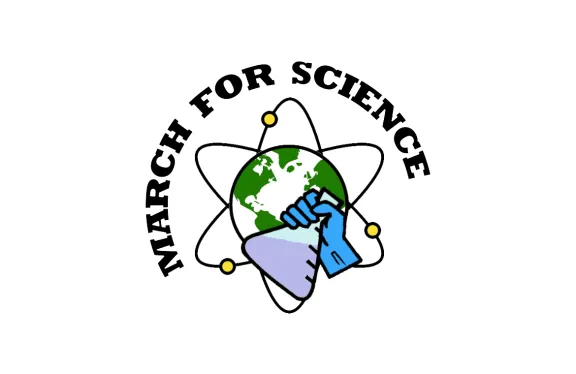
Science Will Not Be Trump’d
It was a crazy week for science.
Naturally, there was a media firestorm following the inauguration of Donald Trump as the 45th President of the United States. To the surprise of many, science was at the forefront of several controversies.
On Friday, January 20, the Interior Department asked the National Park Service (NPS) to temporarily stop using Twitter after it re-tweeted a picture comparing the size of the crowd at Barack Obama’s 2009 inauguration to Trump’s 2017 ceremony.
On Saturday, the NPS started tweeting again, but was told to avoid “policy priorities.”
On Monday, gag orders were reported to the media by members of the United States Department of Agriculture (USDA), Environmental Agency (EPA), and the National Institutes of Health (NIH).
The Trump administration banned the EPA from external press releases, social media activity, and blog posts, and a freeze was placed on grant awards.
It is unclear whether the NIH directive came from the Trump administration or the Department of Health and Human Services, but they are not to discuss or publish “new or pending regulation, policy, or guidance” until after administrative review.
On Tuesday, the USDA’s gag order was revealed to have come from a poorly worded internal memo, not the Trump administration, and was lifted.
The Badlands National Park Twitter feed started tweeting climate facts, acting against orders levied on Friday. Later, the tweets were taken down. The NPS said a former employee posted the tweets, and that the account was compromised.
Many say that halting communication between governmental organizations during a presidential transition is not unusual, but many scientists and supporters of science are concerned.
Also on Tuesday, President Trump revived the Keystone XL Pipeline that President Obama halted, and expedited review for the Dakota Access Pipeline
Concerns were further heightened on Wednesday when the AP reported that the Trump administration ordered the EPA to stop publishing new work until the work could be reviewed by political appointees.
That report was corrected on Thursday, with Trump’s transition team clarifying that they would be reviewing all existing content on the EPA’s website, including “whether climate stuff will be taken down.”
Trump has referred to climate change as a “hoax” propagated by the Chinese.
Enter, the scientific rebellion.
Scientists are now organizing a “March for Science” set for April 22, which was inspired by the Women’s March on Washington.
Scientists are alarmed that the government is stifling communication between federal agencies and the public, even if it might only be for the transition to the new administration.
The movement started with a Facebook group, founded on Monday, January 23. The March for Science rapidly grew across social media, with supporters voicing concern for the state of science in the United States and a desire to march in Washington.
At time of writing, the March for Science Facebook group had over 800,000 members, the Facebook page had more than 298,000 likes, and the Twitter account had more than 294,000 followers.
The group administrators have assembled a planning committee and plan to release a date for the March for Science and information about sister marches this week.
The UCSF Science Policy Group has launched a GoFundMe page to raise funds to send UCSF student scientists to the March for Science in Washington, D.C.
In addition to the March for Science, many “alternative” and “rogue” Twitter accounts popped up this week, like the “Rogue EPA” (@RogueEnvProtAg).
These accounts are sharing facts about climate change, how to get involved with protecting science, and occasional snarky comments about Trump.
More than 90 “rogue” or “alt” Twitter feeds now exist.
Clearly, scientists and proponents of evidence-based decision making will not stand for an era of censorship and “alternative facts.”
As Bernie Sanders tweeted on Friday, “Science is not Democratic or Republican, progressive or conservative.”
Let’s all keep that in mind as we stand up to protect what we learn, practice, and discover every day.


